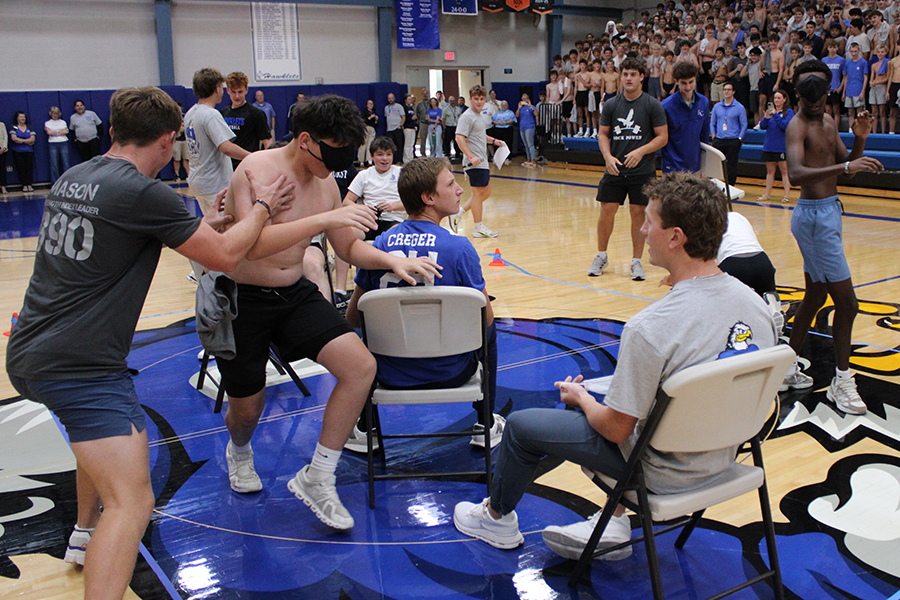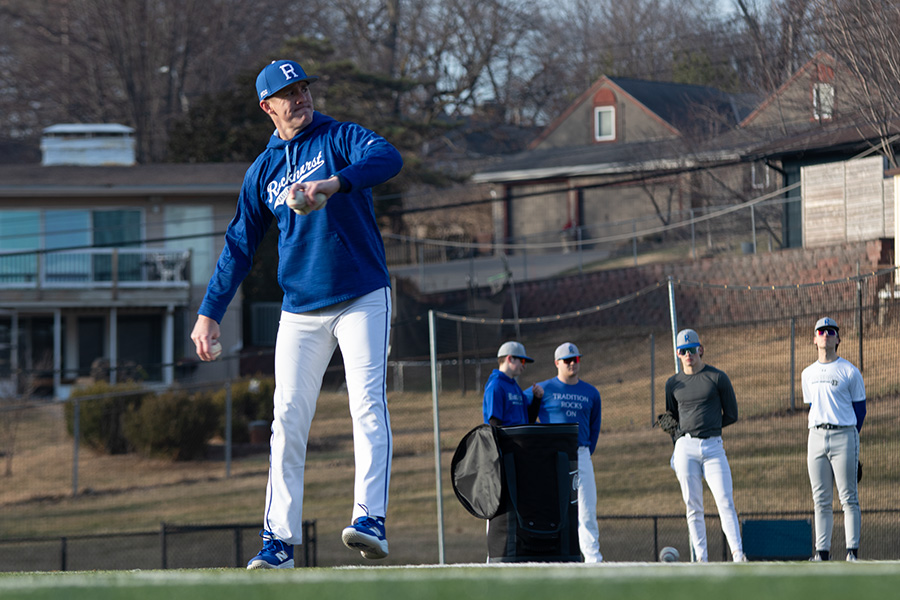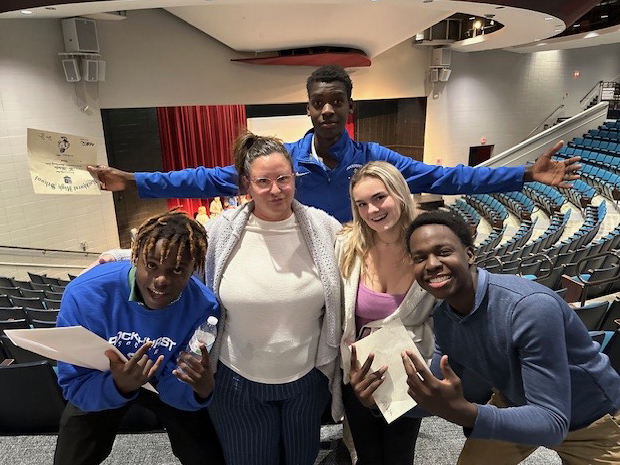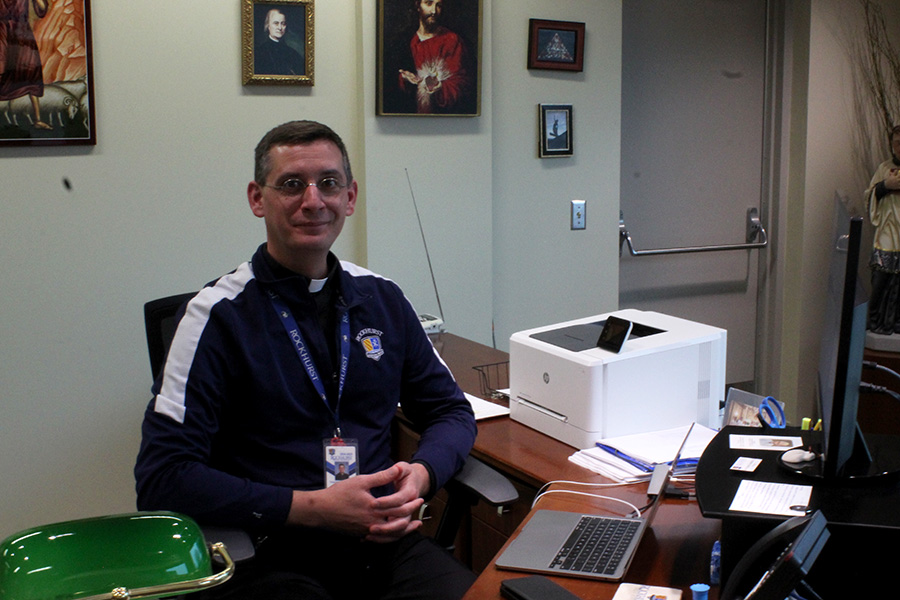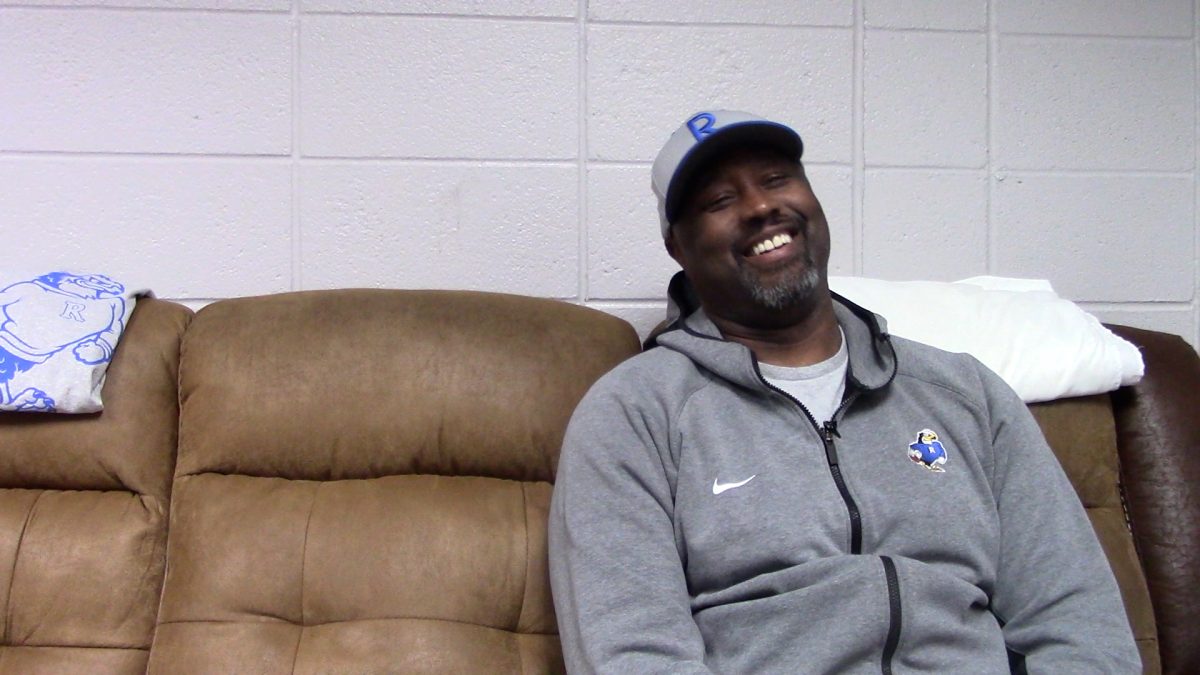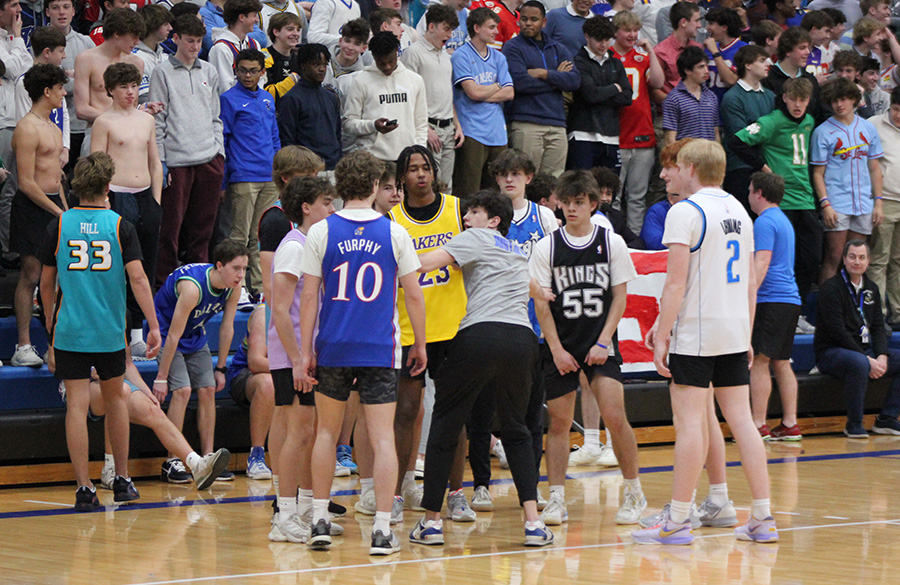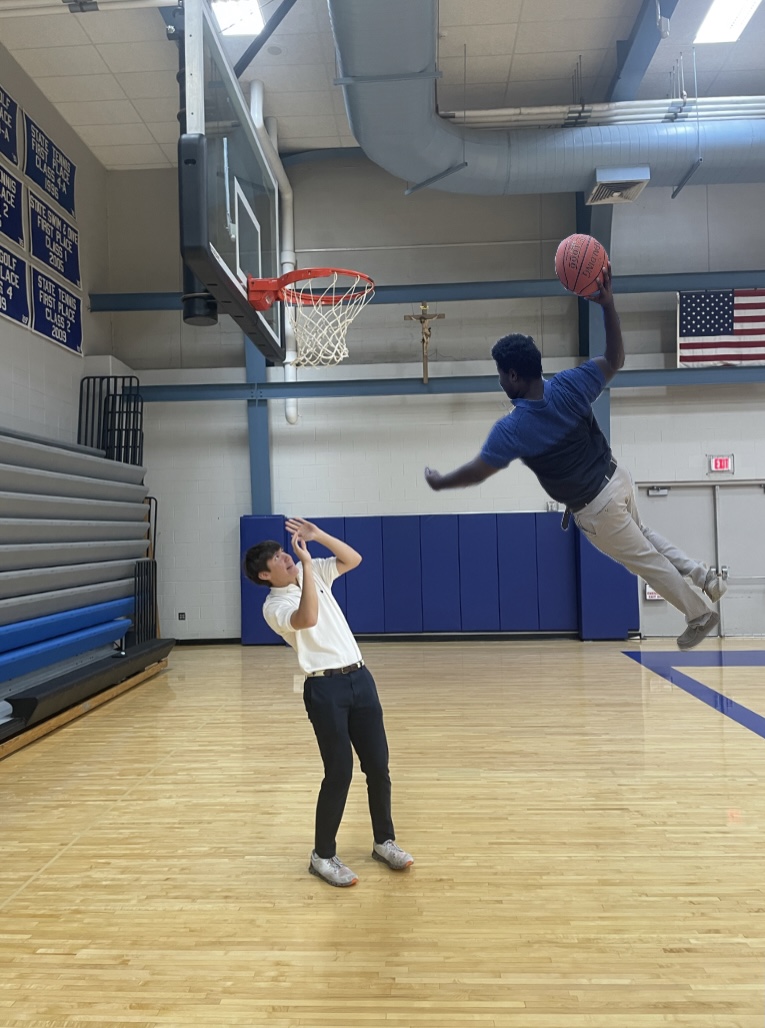Movies can offer a nice respite from the day-to-day grind of a Rockhurst school year. Some teachers use films or videos to supplement their instruction within their respective classes. It’s the same idea with the schoolwide monthly movies.
At least once a month, students can gather in the Rose Theater or McGee Hall after school and watch a movie that is related to one of their classes. For each movie screening, Director of Library Services Dr. Tiffany Rinne works with a different Rockhurst academic department. In October, for instance, she coordinated with the English Department to show “Henry V.” Previous movies included a wide range of themes and genres, from “Barbie” to “Life is Beautiful.”
Dr. Rinne, now in her third year at Rockhurst, has organized monthly movies since her first year here, each with varying success and approaches.
“I’ve tried several different approaches for hosting movie nights over the years,” Dr. Rinne said. “At first, I asked individual teachers to sponsor a movie, giving them the freedom to choose a film that tied into their subject area. While this model gave some teachers the chance to highlight specific topics, it also resulted in some subjects getting more attention than others.
“To address this, I switched to a department-wide model, where each department could select a movie related to their curriculum. The idea was that all teachers within a department would promote the movie and offer extra credit to encourage attendance.”
With each movie, it is very common for teachers to offer extra credit for students who attend. This is one of the main draws for most students, who are looking to gain some extra points with what they see as minimal effort.
“I haven’t been able to make any of the monthly movies yet this year, but I attended a few last year,” senior Rory Colligan said. “I always really enjoyed them. It’s always just such an easy way to get points, and normally, I have some friends there too.”
While the extra credit is a main draw for the monthly movies, Dr. Rinne believes that there is a deeper meaning to the movies.
“While extra credit is certainly an incentive for many students, movie nights can be an effective educational tool in their own right,” she said. “When students watch a film that ties into their curriculum, they often understand and retain the material better because they’re exposed to it in a different format.
“Movies stimulate emotional engagement, making abstract concepts feel more real and tangible. Pairing movies with discussions, quizzes, or assignments reinforces the lessons and encourages students to think critically about the content. Even if students initially come for extra credit, the post-movie analysis could spark deeper thinking and conversations that help them connect the movie to what they’re learning in class. By blending entertainment with education, movies offer a unique way to inspire curiosity and create memorable learning experiences.”
In order to further stimulate learning, it is not uncommon for teachers to assign an additional assignment along with attending the movie. This can include a short essay or simply staying after the movie to contribute in a discussion.
With the current access and frequency of the monthly movies, some might think that the event is at its peak popularity, however, this is not the case. Dr. Rinne noted she actually saw a higher turnout in years where the movies were not organized with entire departments.
“Last year, we actually saw larger turnouts with the individual teacher model. For example, we had over 100 students attend Mr. Leroy’s selection–‘The Imitation Game.'”
Each movie is an opportunity for students to learn more in a different and engaging way. As the movies cycle through different departments, students have the opportunity to engage in their different areas of interest.
“I’ve been to a couple of the different movies, but I think my favorite was the one that we watched sophomore year for chemistry. I think it was called ‘2040,’” senior Noah Titus said. “It was just really interesting to me. I mainly went there for extra credit but I ended up actually having a pretty good time.”
This concept of coming for extra credit is one of the things that Dr. Rinne strives for.
“Movies stimulate emotional engagement, making abstract concepts feel more real and tangible. Pairing movies with discussions, quizzes, or assignments reinforces the lessons and encourages students to think critically about the content.
“Even if students initially come for extra credit, the post-movie analysis could spark deeper thinking and conversations that help them connect the movie to what they’re learning in class. By blending entertainment with education, movies offer a unique way to inspire curiosity and create memorable learning experiences.”


